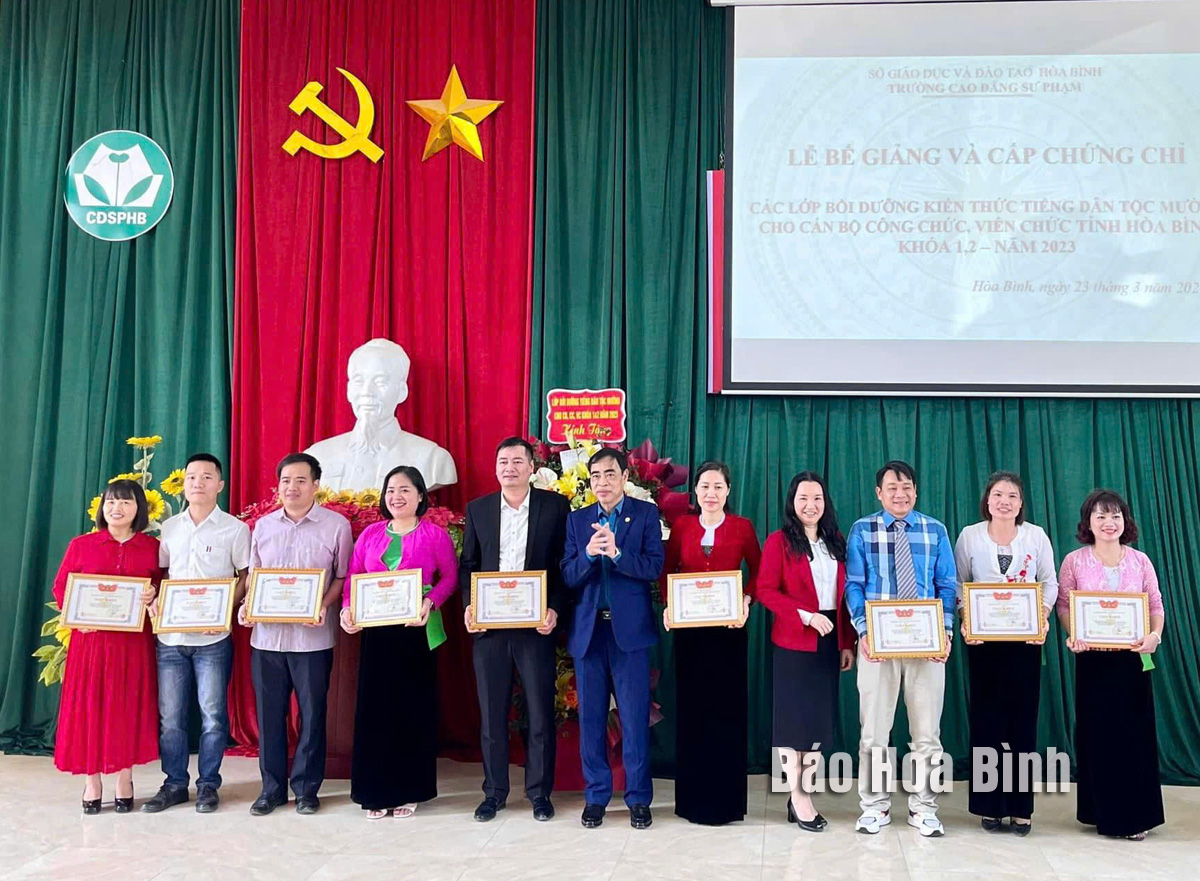



Leaders of the provincial Department of Education and Training and the Hoa Binh College of Education award certificates to the first and second batches of civil servants who completed Muong language training courses.
Luu Huy Linh, Deputy Director of the provincial Department of Culture, Sports and Tourism, said the Muong community in Hoa Binh have created unique cultural values reflected through their customs, beliefs, cuisine, traditional crafts, folk music, legends, proverbs, festivals, and especially the epic Mo Muong folk performance. These cultural elements form the core of Muong identity and are valuable assets for community cohesion and cultural creation. However, the ongoing process of urbanisation is impacting the lives of the Muong people, eroding many traditional cultural values. Therefore, the preservation of the Muong language and writing system has become critically important.
Historically, the Muong people did not have a script, and their literature was primarily passed down orally. Their rich folklore includes myths and legends, as well as various forms such as stories, poetry, folk songs, and the famous epic "De dat, De nuoc” (The Birth of the Earth and Water), which reflects Muong customs and practices in history. These oral traditions have significant cultural, historical, and scientific value, often blending into the realm of art.
The Muong language is tonal and closely related to Vietnamese, belonging to the Viet-Muong language group within the Austroasiatic language family. Today, it is still actively used in everyday life and communication within the community.
Following provincial leaders' directions, the Hoa Binh Party Committee’s Board for Information and Education and the provincial Department of Science and Technology, in collaboration with relevant departments, have developed a Muong alphabet. On September 8, 2016, the provincial People's Committee issued Decision No. 2295/QD-UBND, officially approving the Muong script for use in daily life, further contributing to the preservation and promotion of Muong cultural values. Educational materials were developed to be implemented among civil servants, public employees, and the Muong people. However, there are alarming concerns regarding the declined use of the Muong language, particularly among younger generations, as many families in urban areas no longer use it for daily communication.
To address this issue, in 2019, the provincial People's Committee approved Decision No. 1349/QD-UBND for a project to teach and promote the Muong language during 2018 - 2025, with a vision to 2030. The Department of Education and Training was tasked with leading this initiative, with the Hoa Binh College of Education acting as the main implementing body. One of the key objectives is to train Muong language teachers along with civil servants, public employees, and military personnel.
Nguyen Thi Le Huong, Principal of the Hoa Binh College of Education, stated that the school has trained 500 teachers in the Muong language, providing certificates to 471 out of 472 participants. In 2023, it completed a plan to train and certify 120 civil servants, as well as 150 police officers and soldiers from Hoa Binh and nearby Thanh Hoa province. In 2024, the school will continue its efforts by offering classes for provincial-level officials and public employees in Tan Lac district. The school has also hosted two pilot workshops to evaluate Muong language materials for students and other learners in the province.